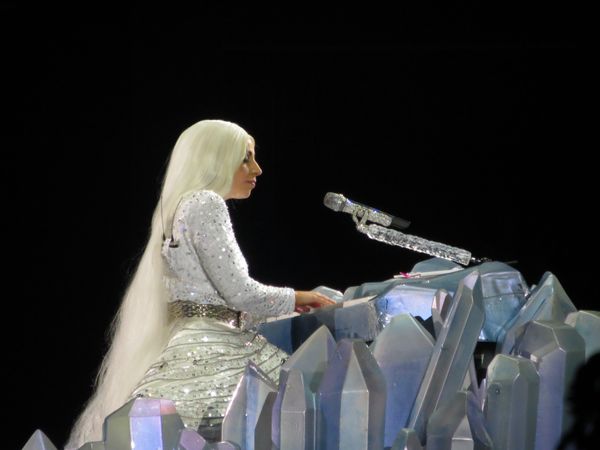Seemingly out of nowhere, allegations bloomed left and right this past week about supposedly "uncanny" similarities between Childish Gambino's 2018 smash hit "This is America" and a Jase Harley song from 2016. Upon listening to the Harley song in question, "American Pharaoh", it wasn't hard to pick up on what the accusatory listeners heard.
The songs share a relatively similar structure, beginning with a sung refrain backed by harmonized vocals that suddenly transition into a darker trap-influenced beat and back again. Harley and Gambino somewhat use similar flows and discuss comparable subject matter, but that's pretty much where the similarities end. Granted, it's easy to see where the suspicion arose from, but it's nothing new with the recycling culture of musical creation.
Hip-hop as a genre is especially shaped by mutual influence, founded on a communal creativity. The Bay Area rap group SOBxRBE's 2017 track "Calvin Cambridge" appears to take certain influence from Eazy-E's seminal 1987 rap song "Boyz-N-The-Hood". A$AP Ferg's "Plain Jane", also from 2017 is a proud homage to the 1999 track "Slob on My Knob" by Tear the Club Up Thugs. It's very hard to call either of these instances plagiarism, but they're as similar, if not moreso, as Gambino is with the Jase Harley track.
Of course, if Glover did lift the track from Harley, he wasn't transparent about it, which is a big part of the issue. But they're both products of a common culture and musical development. The verse sections in either song are somewhat reminiscent of the atmospheric and dark instrumentals from "Hands Up" by Vince Staples, "THat Part" by ScHoolboy Q and "Worldstar" by none other than Childish Gambino. Countless other tracks exhibit the same drum programming and atmospheric production that punctuates "This is America" and "American Pharaoh". The two tracks are similar, no doubt, but there is no plagiarism to my ears (and let me clarify that I'm not an expert by any means, but I have studied copyright law and infringement cases in some of my coursework, and this doesn't appear to constitute infringement based on current precedents). Saying that Glover stole the track from Harley, to be frank, holds little weight as an accusation.
A recurring response that I encountered on Reddit and Twitter said, in so many words, "This completely discredits Donald Glover, I can't listen to 'This is America' anymore after this", which got me thinking. Even if I did think the music was plagiarized, would I have lost respect for Donald Glover? Would it discredit "This is America" as an individual work in and of itself? Personally, I don't think so.
When "This is America" was released in May 2018, as I recall, much of the discussion and attention it received wasn't because of the song itself. It was about the music video, which captivated the eyes of media outlets for several weeks. It became a pop culture phenomenon, a musical moment that has created a widespread social conversation I haven't seen from a single music video in a long time, if ever. This video had nothing to do with the plagiarism controversy, and operates as an independent, and incredibly well-executed, extension of the statement that Donald Glover wanted to make. In that sense, Donald Glover (and for that matter, the ever brilliant Hiro Murai, the director of the video and a frequent collaborator on Glover's FX show "Atlanta") is untouched and undeniably game-changing.
Moreover, the statement that Glover is making shouldn't be countered or devalued by this controversy. It's a shame that this whole incident will undoubtedly be used to belittle Donald Glover and this song in the future. Jase Harley himself has been very mature about the whole situation, saying in an Instagram post,
"I appreciate all the love and support! But PLEASE DON'T let this controversy dilute the message me and @childishgambino are trying to convey. We are speaking about injustices we've encountered and he's helped to provide a platform for all our voices to be heard. Let's not discredit him for that! The focus should be on affecting change in our communities and building equality. This is bigger than me and him and bigger than music".
Harley said it better than I ever could. It seems that so far in 2018 people are quite willing to cut down celebrities without giving it a second thought. While in many cases we should validly reevaluate our stances on certain figures (especially in cases of abuse and assault, which is never ever ever excusable under any circumstance), I was disappointed to see people so easily cast aside all of Glover's previously proven artistic integrity solely because of this incident. Whether or not Gambino stole the song from Harley, which as I said earlier, I can't really rationalize, his statements and the conversation he started should not be stifled.
Even worse was when an irate internet called Kendrick Lamar a racist for asking a white fan to stop using the n-word onstage while rapping along to his song "m.a.a.d city". The sad truth is that artists can do the slow work of cultivating a widening fanbase, put their blood, sweat and tears into a game-changing masterpiece, and yet still all it takes is a loosely-founded controversy to snowball into a witch hunt. We should keep holding our public figures to standards of quality, but while he have expectations, we should be willing to trust them and listen to their messages. Using these kinds of controversies to disengage from the important discussions that Lamar and Glover have jumpstarted with their music isn't just disappointing, it's also a deflection. We don't have to stop talking about these controversies, but we shouldn't let it lessen the conversation about what Gambino and his contemporaries are trying to tell us.



















